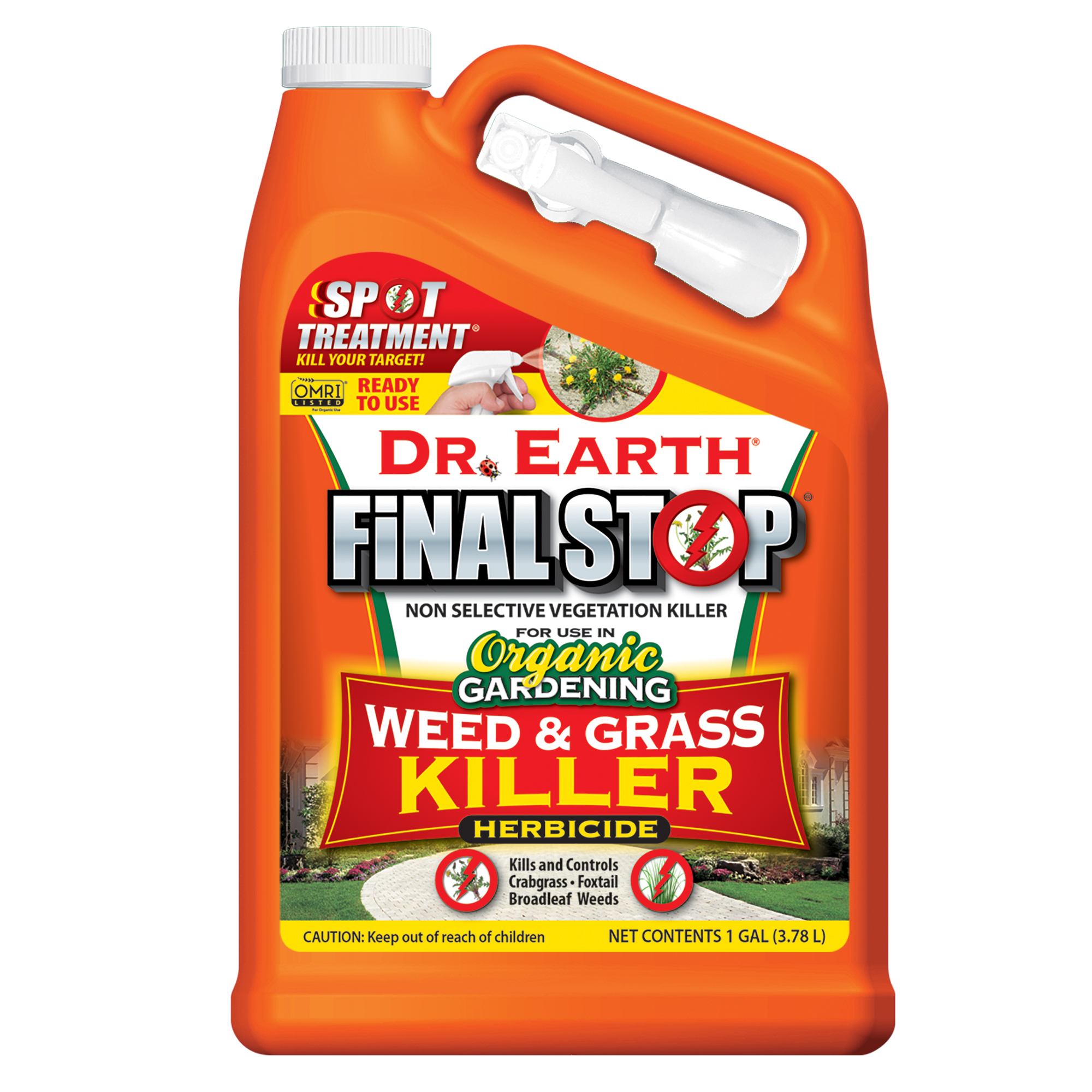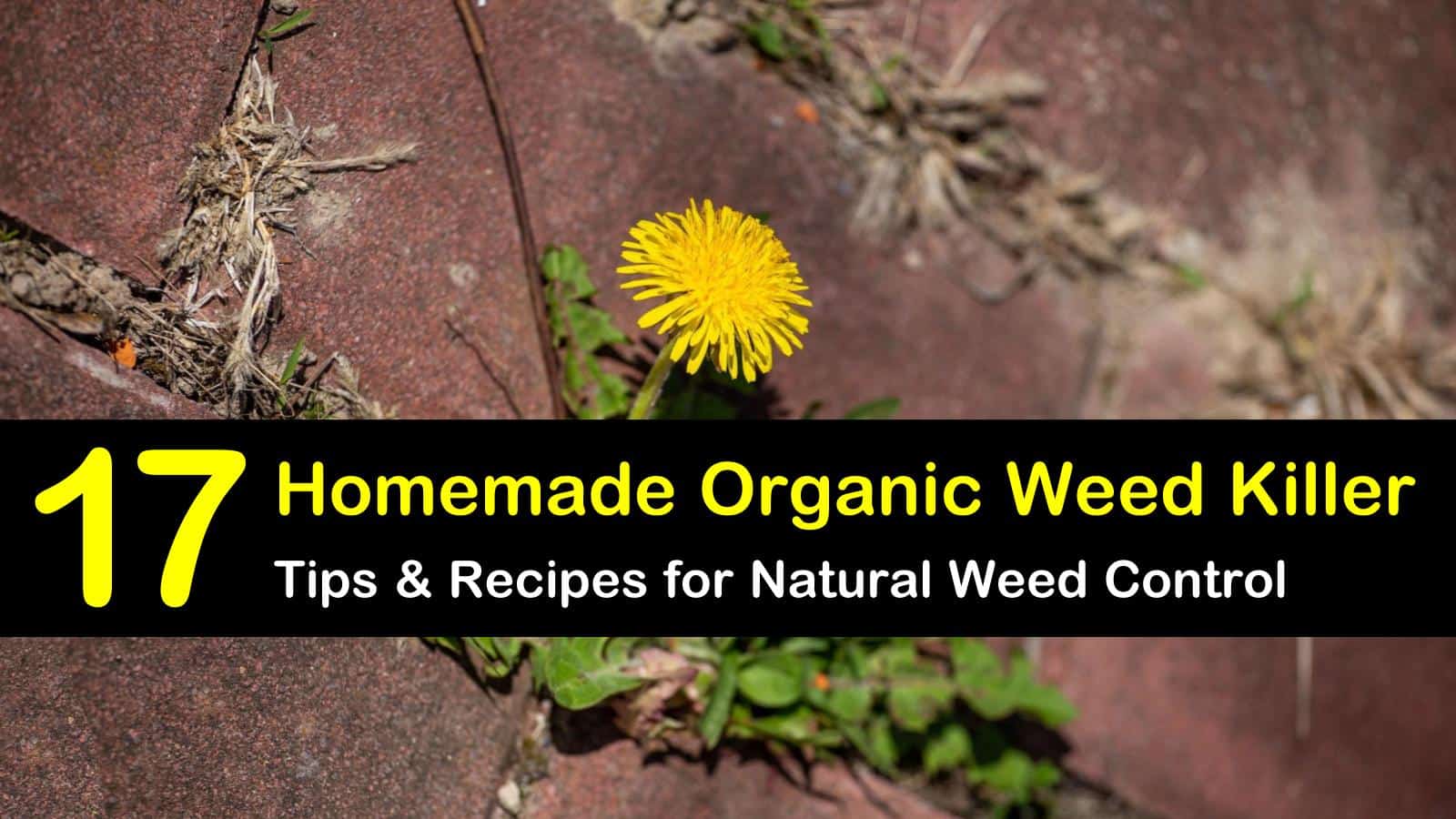Hey there, garden enthusiasts and eco-warriors! If you're looking for ways to keep your yard weed-free without resorting to harsh chemicals, you're in the right place. Organic gardening is more than just a trend—it's a lifestyle. Natural weed killers are not only safer for the environment but also better for your health and the health of your plants. Today, we'll dive deep into some effective organic solutions that’ll help you reclaim your garden without compromising your values.
Let’s face it—dealing with weeds can be frustrating. They pop up everywhere, stealing nutrients from your beloved plants and ruining the aesthetics of your outdoor space. But don’t worry; we’ve got your back. This guide is packed with tips, insights, and practical solutions to help you tackle weeds naturally.
Whether you're a seasoned gardener or just starting out, this article will provide you with all the information you need to make informed decisions. We’ll explore the science behind organic weed control, share tried-and-true methods, and even sprinkle in some fun facts along the way. Let’s get started!
Read also:Ssh Remote Iot Raspberry Pi Example Your Ultimate Guide To Secure Connections
Understanding the Importance of Organic Weed Control
Before we jump into the nitty-gritty of natural weed killers, it's essential to understand why organic solutions are so important. Chemical herbicides may seem like a quick fix, but they come with a host of problems. From contaminating soil and water to harming beneficial insects, these synthetic products can do more harm than good in the long run.
Organic weed control, on the other hand, focuses on sustainability and balance. By using natural methods, you're not only protecting the environment but also promoting healthier soil and plant growth. Plus, it’s a lot safer for you, your family, and any pets that might wander into your garden.
Top Natural Weed Killers You Should Know About
1. Vinegar: The Acidic Powerhouse
Vinegar is one of the most popular natural weed killers out there, and for good reason. Its high acidity level makes it incredibly effective at killing weeds, especially when applied directly to the leaves. Simply mix equal parts water and vinegar in a spray bottle, and you're good to go.
However, keep in mind that vinegar is non-selective, meaning it can harm surrounding plants if not used carefully. So, it's best to apply it on a calm day to avoid overspray. Also, repeated applications may be necessary for larger or more stubborn weeds.
2. Boiling Water: Simple Yet Effective
If you're looking for a quick and easy solution, boiling water might just be your best friend. Pouring boiling water over weeds is a surefire way to kill them on contact. This method is especially useful for weeds growing in cracks and crevices, such as driveways or sidewalks.
Just be careful not to scald yourself or any nearby plants. And remember, this method works best for small weeds. Larger ones may require additional treatments.
Read also:Gloria Gaither Health A Journey Of Faith Music And Wellness
DIY Organic Weed Killer Recipes
Feeling crafty? Why not whip up your own organic weed killer at home? Not only is it fun, but it’s also cost-effective and allows you to customize the solution to your specific needs. Here are a couple of recipes to get you started:
- Vinegar and Salt Mixture: Combine 1 gallon of white vinegar with 1 cup of salt and 1 tablespoon of liquid dish soap. Mix well and transfer to a spray bottle. This solution is great for killing weeds in garden paths and driveways.
- Citrus Oil Spray: Mix 1 cup of citrus oil with 1 gallon of water and a few drops of dish soap. This concoction is perfect for targeting tough weeds and can be applied directly to the leaves.
These DIY solutions are not only effective but also safe for the environment. Plus, they’re budget-friendly, which is always a win in our book.
How to Prevent Weeds Naturally
While killing weeds is important, preventing them from growing in the first place is even better. Here are some tips to help you keep your garden weed-free:
- Mulching: Mulch acts as a barrier between the soil and the sun, preventing weed seeds from germinating. It also helps retain moisture, which is great for your plants.
- Cover Crops: Planting cover crops like clover or rye can help suppress weed growth by shading the soil and competing for resources.
- Regular Maintenance: Pulling weeds as soon as you see them can prevent them from spreading. It’s a bit of work, but it’s worth it in the long run.
By incorporating these prevention strategies into your gardening routine, you’ll save yourself a lot of time and effort down the road.
Benefits of Using Organic Solutions
Switching to organic weed control methods comes with a host of benefits. Not only are they safer for the environment, but they also promote healthier soil and plant growth. Here’s a closer look at some of the advantages:
- Improved Soil Health: Organic methods enhance soil structure and fertility, creating a better growing environment for your plants.
- Reduced Chemical Exposure: By avoiding synthetic herbicides, you’re protecting yourself, your family, and your pets from harmful chemicals.
- Cost-Effective: Many organic solutions, like vinegar and boiling water, are inexpensive and readily available.
These benefits make organic weed control a no-brainer for anyone looking to garden sustainably.
Common Myths About Organic Weed Killers
There are a lot of misconceptions floating around about organic weed control. Let’s debunk some of the most common ones:
- Myth: Organic solutions aren’t as effective as chemical herbicides. Fact: With consistent application and the right techniques, organic methods can be just as effective.
- Myth: Natural weed killers are too expensive. Fact: Many organic solutions, like vinegar and boiling water, are actually cheaper than commercial herbicides.
- Myth: You’ll have to do more work with organic methods. Fact: While some organic solutions require more effort upfront, they often save time in the long run by promoting healthier soil and plants.
Don’t let these myths discourage you from trying organic weed control. With a little patience and persistence, you’ll see great results.
Case Studies: Success Stories in Organic Weed Control
Want proof that organic weed control works? Check out these real-life success stories:
1. The Urban Gardener
John, an urban gardener from Chicago, was tired of using chemical herbicides in his small backyard garden. He decided to switch to organic methods and hasn’t looked back since. By using a combination of vinegar, mulch, and regular maintenance, he’s kept his garden weed-free for over two years.
2. The Eco-Friendly Farmer
Sarah, a farmer in rural Ohio, implemented organic weed control practices on her 10-acre farm. She used cover crops and natural weed killers to combat weeds, resulting in healthier soil and increased crop yields. Her success has inspired other farmers in the area to adopt similar practices.
These stories show that organic weed control is not only possible but also highly effective when done right.
Expert Tips for Effective Organic Weed Control
Ready to take your organic weed control game to the next level? Here are some expert tips to help you succeed:
- Know Your Enemy: Identify the types of weeds you’re dealing with. Different weeds may require different treatment methods.
- Timing is Everything: Apply organic solutions when the weeds are young and vulnerable. This will increase their effectiveness.
- Combine Methods: Don’t rely on just one method. Use a combination of organic weed killers, mulching, and prevention strategies for the best results.
By following these tips, you’ll be well on your way to a weed-free garden.
Conclusion: Your Journey to a Weed-Free Garden
And there you have it—everything you need to know about effective organic solutions for natural weed control. From understanding the importance of organic methods to implementing practical tips and tricks, this guide has equipped you with the knowledge to tackle weeds the eco-friendly way.
Remember, patience and persistence are key. Organic weed control may take a bit more effort upfront, but the long-term benefits are well worth it. So, grab your gardening gloves and get ready to transform your outdoor space into a lush, weed-free paradise.
Don’t forget to share your own experiences and tips in the comments below. And if you found this article helpful, be sure to check out our other gardening guides for more useful information. Happy gardening, folks!
Table of Contents
- Understanding the Importance of Organic Weed Control
- Top Natural Weed Killers You Should Know About
- DIY Organic Weed Killer Recipes
- How to Prevent Weeds Naturally
- Benefits of Using Organic Solutions
- Common Myths About Organic Weed Killers
- Case Studies: Success Stories in Organic Weed Control
- Expert Tips for Effective Organic Weed Control
- Conclusion: Your Journey to a Weed-Free Garden


